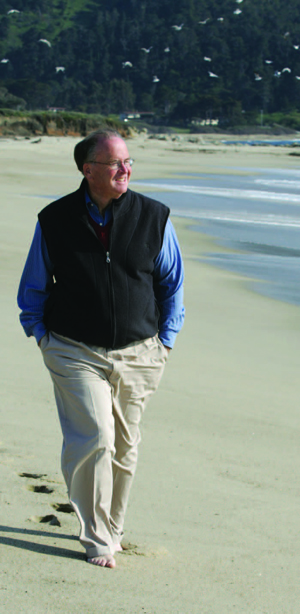The spring and summer months of 2010 have seen some of the best and the worst developments for the ocean.
The BP Deepwater Horizon oil rig disaster in the Gulf of Mexico continues to remind us that the ocean and coasts are woefully mismanaged and the agencies with jurisdiction are severely underfunded.
However, in July we also saw President Obama sign an executive order ushering in our first federally recognized National Ocean Policy. The House of Representatives added to that victory by passing a regional ocean governance structure and ocean trust fund.
The president's executive order establishes a comprehensive, integrated national policy for stewardship of the ocean. It creates a new National Ocean Council to provide sustained, high-level, coordinated attention to ocean, coastal, and Great Lakes issues.
On the legislative side, the House passed the Consolidated Land, Energy, and Aquatic Resources Act, known as the CLEAR Act. In addition to addressing the country's oil spill prevention and response needs, the CLEAR Act mirrors the regional ocean governance portions and trust fund set forth in my Oceans-21 legislation.
Oceans-21 was written to provide the mechanisms needed to establish better coordination, collaboration, funding, and research to protect, conserve, and sustainably manage our essential ocean and coastal resources, and I’m proud that it has served as a model for this year's triumphs.
These legislative gains are huge, and the future of ocean and coastal health starts now. But we must remember that Oceans-21, the executive order, and the findings of the Interagency Ocean Policy Task Force, the Pew Oceans Commission, and the U.S. Commission on Ocean Policy would not have been possible without sound ocean research and science supporting their guiding principles.
To that end, I couldn’t be prouder to represent a district that boasts one of the most diverse marine ecosystems and that is home to an internationally recognized center for marine science with 23 institutions and counting.
Included in this group are UCSC's Institute of Marine Sciences, Center for Ocean Health, and Seymour Marine Discovery Center at Long Marine Laboratory. UCSC professors Mark Carr and Pete Raimondi are fine examples of the great work being done at the school. Their expertise in coastal biology and marine ecology put the university's Institute of Marine Sciences on the cutting edge of coastal ecosystem research that informs policy makers on how to best manage our ocean and coastal resources.
The partnerships UCSC has formed with agencies like the NOAA National Marine Fisheries Service, the U.S. Geological Survey, and the California Department of Fish and Game have created an unmatched synergy of science, research, and discovery on the Monterey Bay, making it a premier point of contact to help guide progressive ocean and coastal policies.
While it has been painful to watch the oil tragedy unfold in the Gulf of Mexico, it has been inspirational to see both the executive and legislative branches take action and make positive strides forward for the health and sustainability of our invaluable ocean and coastal resources.
—By Congressman Sam Farr, D-Carmel
Congressman Sam Farr represents the state's Central Coast. His district covers part of Santa Cruz County, including UC Santa Cruz.



